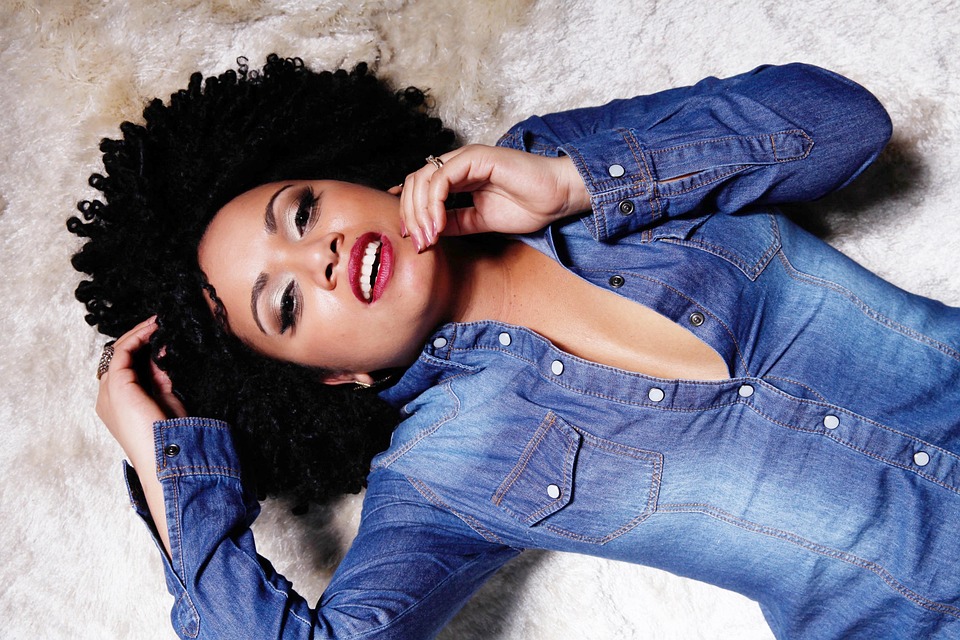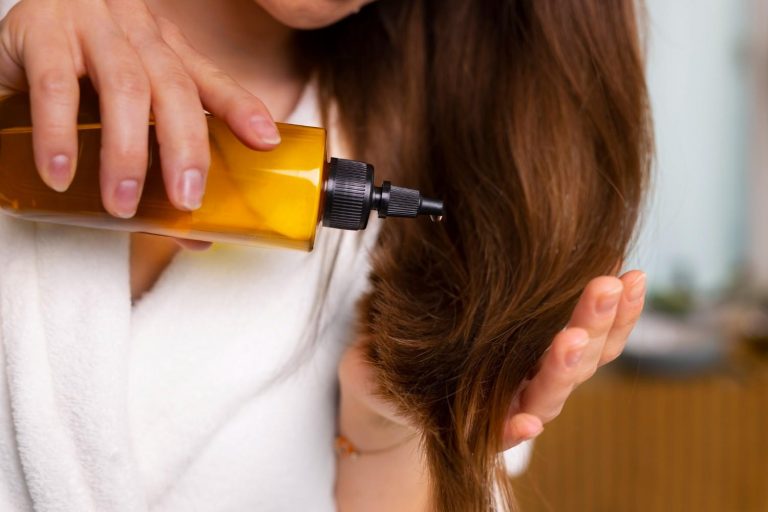Have you ever felt that pang of panic when you notice a little more hair in your brush than usual? You’re not alone. Hair loss can be a frustrating and often emotional experience for many women. While genetics and hormonal changes can play significant roles, there are natural remedies that might help boost hair growth. In this article, we’ll explore ten of these remedies, providing insights into their efficacy, pros and cons, and some real-life applications.
Contents
1. Essential Oils
How They Work
Essential oils, particularly rosemary, peppermint, and lavender, have gained popularity for promoting hair growth. Studies suggest that these oils may increase blood circulation to the scalp, stimulating hair follicles.
Pros and Cons
Pros:
- Natural and aromatic
- Can be easily incorporated into daily routines
Cons:
- May cause allergic reactions in some individuals
- Needs to be diluted with a carrier oil before application
Real-life Application
I’ve tried rosemary oil mixed with coconut oil, and I noticed a subtle increase in the thickness of my hair over a few months. Just remember to do a patch test first!
2. Aloe Vera
How It Helps
Aloe vera is celebrated for its soothing properties. It can reduce inflammation and itching on the scalp while providing essential nutrients that promote hair growth.
Pros and Cons
Pros:
- Gentle on the scalp
- Hydrates and nourishes hair
Cons:
- Results may take time
- Can be messy to apply
Real-life Application
Using fresh aloe vera gel directly from the plant has become part of my weekly hair care routine. It feels refreshing and leaves my hair soft!
3. Biotin Supplements
The Science Behind It
Biotin, a B-vitamin, is often touted for its role in hair health. Some studies indicate that biotin supplementation can improve hair growth in individuals with deficiencies.
Pros and Cons
Pros:
- Easy to find in supplement form
- Generally considered safe
Cons:
- Over-supplementation can lead to adverse effects
- Results may vary from person to person
Real-life Application
After hearing rave reviews, I decided to try biotin supplements. While I noticed some subtle growth, I made sure to consult with my doctor first.
4. Scalp Massages
Why They Work
Scalp massages increase blood flow to the hair follicles, which may enhance hair growth. Plus, they can be incredibly relaxing!
Pros and Cons
Pros:
- No cost involved
- Can be done anywhere
Cons:
- Results may be slow
- Requires consistency
Real-life Application
I’ve started giving myself a five-minute scalp massage while applying my hair oils. It’s become a little self-care ritual that I look forward to!
5. Nutrient-Rich Foods
The Role of Diet
What you eat significantly impacts hair health. Nutrients like omega-3 fatty acids, zinc, and iron can contribute to stronger, healthier hair.
Pros and Cons
Pros:
- Holistic approach to hair health
- Benefits extend beyond just hair
Cons:
- Requires a balanced diet
- Fast food and processed foods can negate benefits
Real-life Application
Incorporating foods like salmon, spinach, and nuts into my diet has been an easy way to boost my overall health—and my hair seems to love it!
6. Green Tea
The Benefits
Green tea is rich in antioxidants, particularly epigallocatechin gallate (EGCG), which may help stimulate hair growth.
Pros and Cons
Pros:
- Can be consumed or applied topically
- Lowers inflammation
Cons:
- The taste might not be for everyone
- Effects can vary
Real-life Application
I’ve started drinking green tea daily and even use cooled tea bags on my scalp. It feels refreshing, and I love the idea of giving my hair a little extra boost!
7. Onion Juice
The Surprising Secret
Onion juice might sound odd, but it’s been shown to improve circulation and has antibacterial properties that can help with scalp health.
Pros and Cons
Pros:
- Rich in sulfur, which can promote collagen production
Cons:
- Smell can be off-putting
- Requires frequent application for results
Real-life Application
I was skeptical, but after a few applications, my hair felt stronger. Just be prepared for the lingering onion smell!
8. Fenugreek Seeds
How They Work
Fenugreek seeds are packed with protein and nicotinic acid, both of which are beneficial for hair growth.
Pros and Cons
Pros:
- Can be used in various forms (paste, oil)
- Nourishes the scalp
Cons:
- Preparation can be time-consuming
- Some may experience allergic reactions
Real-life Application
I’ve made a paste from soaked fenugreek seeds and applied it to my scalp. It’s a bit of a hassle, but the results are worth it!
9. Coconut Oil
The Benefits
Coconut oil is known for its moisturizing properties. It can penetrate the hair shaft, reducing protein loss and keeping hair healthy.
Pros and Cons
Pros:
- Versatile; can be used for cooking and hair care
- Natural and chemical-free
Cons:
- May not suit all hair types (can weigh down fine hair)
- Can be greasy
Real-life Application
I use coconut oil as a pre-shampoo treatment. My hair feels softer and looks shinier afterward!
10. Vitamin D
The Importance
Vitamin D plays a crucial role in the hair growth cycle. Low levels have been linked to hair loss, particularly in women.
Pros and Cons
Pros:
- Can be obtained from sunlight, food, or supplements
- Supports overall health
Cons:
- Over-supplementation can lead to toxicity
- Requires regular monitoring
Real-life Application
After getting my levels checked, I started taking vitamin D supplements. I’ve felt more energetic, and my hair seems to be responding positively too!
FAQs
1. How long does it take to see results from natural remedies?
Results vary widely, but many women see noticeable changes within 3 to 6 months of consistent application or dietary changes.
2. Can I combine several remedies?
Absolutely! Many women find success by mixing and matching different remedies to create a personalized hair care routine.
3. Are there any side effects to be aware of?
While most natural remedies are safe, some may cause allergic reactions or irritation. Always do patch tests and consult a healthcare provider if unsure.
4. What if none of these remedies work for me?
If you don’t see results after several months, it might be worth consulting a dermatologist or healthcare provider to rule out underlying issues.
Conclusion
While hair loss can be a challenging experience, exploring natural remedies offers hope and a proactive approach to hair health. Each remedy has its unique benefits and potential drawbacks, and what works for one person may not work for another. The key is to be patient and consistent while also keeping your expectations realistic. Remember, healthy hair is often a reflection of a healthy lifestyle, so consider incorporating these remedies alongside a balanced diet and good self-care practices.
And let’s be real: while these natural remedies can be effective, they may not be a one-size-fits-all solution. Always consult with a healthcare provider before making significant changes to your health routine.
This article is for educational purposes only and is not a substitute for professional medical advice. Always consult a qualified healthcare provider before making changes to your health routine.
References
-
Koo, J. (2017). Essential Oils and Hair Growth: A Review. Journal of Cosmetic Dermatology. Retrieved from https://www.ncbi.nlm.nih.gov/pmc/articles/PMC5599299/
-
Harnack, K. (2022). The Role of Biotin in Hair Growth. Harvard Health Publishing. Retrieved from https://www.health.harvard.edu/staying-healthy/the-role-of-biotin-in-hair-growth
-
Kwon, H. (2020). The Effect of Diet on Hair Health. Mayo Clinic Proceedings. Retrieved from https://www.mayoclinicproceedings.org/article/S0025-6196(20)30509-2/fulltext
Get Your FREE Natural Health Guide!
Subscribe now and receive our exclusive ebook packed with natural health tips, practical wellness advice, and easy lifestyle changes, delivered straight to your inbox.




